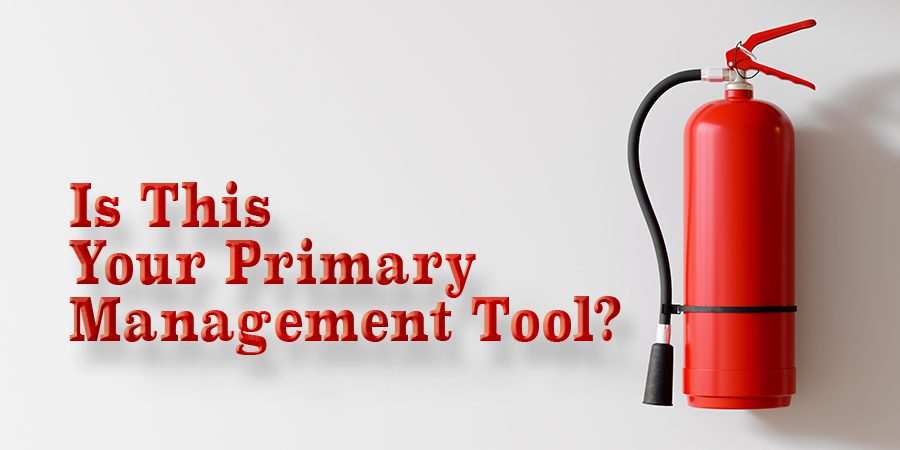Up Your Business is an exclusive GEARS Magazine feature in which I share stories, insights, and reflections about real business and life challenges.
Have you ever thought about the expression, “My way or the highway”? Why is the “highway” a negative when its counterpart, the “high road” isn’t? Makes you want to say, “Hmmm.”
Today I want to share two recent customer service experiences… one where I was essentially, given the my-way-or-the-highway choice, and a second where an ATRA Good Guy exemplifies taking the high road. Both deal with customer service situations that fell outside routine policies and procedures, but only one is a clear winner.
My Way or The Highway
The airline industry is an easy mark when it comes to finding examples being rigid and unaccommodating when it comes to making exceptions to their policies and rules. There’s only one airline that’s made a profit every year over the last 40 years: Southwest Airlines. Ironically, they tend to be the most relaxed in dealing with exceptions and change requests. They look for ways to say “yes,” while others seem to do the opposite. We could probably spend a few pages discussing their business procedures, but this article doesn’t have anything to do with Southwest Airlines.
First, here’s a little background to set the stage regarding the exceptionally stressful circumstances involved. Recently, my wife, our two sons, and I travelled from Phoenix to Seattle. The mission of this trip was to pack up my mother-in-law’s belongings and move her into an assisted-living facility here in Arizona. We’d rented a one-way truck, and the boys were going to drive the loaded truck back to Phoenix while my wife and I flew back with her mom.
I wish I’d taken a picture of what became the bone of contention at the check-in counter for our departing flight. Here’s my attempt to paint a word picture: I’d neatly sandwiched some moving blankets between two, 4-wheeled furniture dollies with the wheels facing inward, so they wouldn’t present a hazard. I used a combination of bungee cords and packing tape to secure the bundle.
The entire bundle was 30″x 18″x 12″ — about the size of a full-sized suitcase — and weighed about 30 pounds (well under the size and 50-pound limit). By the way, I’d discussed my intention on the phone with the airline’s baggage department prior to putting the bundle together and the agent gave me her blessing, subject to meeting the above-described size and weight parameters.
At any rate, when I placed the bundle on the scale at the check-in counter — for an airline that was decidedly not Southwest! — the ticket agent gave me the stink eye and immediately copped an attitude. Without a hello or any other friendly greeting, she said, “I’ll have to speak with my supervisor to see if this can be checked.”
She ignored me when I told her I’d already gotten it cleared by phone, and, without another word, she pivoted to find her supervisor. When she returned, she told us that their baggage policy doesn’t allow items to be bundled together. If they were in a box or even a large plastic bag, it would’ve been okay.
I asked to speak with the supervisor. I explained the circumstances and pleaded with her to make an exception. I pointed out other checked items, like strollers and wheelchairs, all with other items attached to them.
Finally, she offered us the my-way-or-the-highway solution: Separate the dollies, check them as individual items, and put the blankets into a large plastic bag, which she offered to provide. Of course, we’d have to pay checked bag fees of $35 for each of the now-separate items.
The cost to rent the dollies and blankets from the truck rental company would only be about $75. The total baggage fees would be $105, so it didn’t make sense to take them. It was just that I already owned the stuff and was trying to save a few bucks.
She said this was the best she could offer and added that, if I had put it all in a plastic bag or a box before coming to the airport, they wouldn’t have seen the way it was bundled, and it would’ve been okay. But — get a load of this! — there was no way they could allow us to put it in a bag and check it now because they’d seen that it didn’t comply with their policy.
I was about to take the whole bundle back out to our car, more out of principle than anything else, when an agent (the hero of our story), who was working the adjacent counter and had overheard the entire conversation, said “I have a suggestion: I see that you’re a priority club member. One of the benefits of your membership is that you, and each of the people traveling in your party, get one free checked item. Since there are four of you, let’s just separate the dollies, bundle the blankets in a large bag, and check them through. It won’t cost you anything at all.”
The difference between the agents was that the hero agent was looking for what I call a “yes-able” solution, rather than being bound by policies and procedural rules and a my-way-or-the-highway attitude.
Taking the High Road
Turning our attention back to the transmission business, here’s a story about one of our ATRA Good Guys. This is one of the best examples of perfect customer-centric service I’ve ever observed. I was fortunate to be visiting the shop and to get to watch what took place first hand.
The service adviser took a call from a frightened consumer. He was afraid that he had a transmission problem and afraid to take it anywhere until he’d gotten some prices. Recognizing that this potential customer’s fear was real and needed to be relieved, the service adviser offered to make a complimentary “house call.”
He explained that he would drop by on his way back from lunch, and road test and check the car visually, so he could better advise the customer. In this case, the customer was at work, so it ended up to be an “office call” — actually even better. The customer accepted the service adviser’s kind offer.
I couldn’t resist going on a ride-along. While performing the road test, examining the fluid, and performing a few other visual checks, the service adviser was proactively building rapport and trust with the customer.
He advised the customer that, to pinpoint the problem, he needed to do a more extensive diagnostic evaluation and an electronic system scan that he could only do at the shop. He said it would run around $149 and that the cost of the diagnosis would apply toward any repairs that were necessary.
At this point, the customer was comfortable with allowing him to take the car to the shop for the additional diagnosis. But he asked if it’d be finished before the end of the day, because he needed it to get back and forth to work.
Without missing a beat, the service adviser handed the customer his keys, saying, “Here; take the keys to my company car. Feel free to use it until I have your car back. You can even drive it home overnight if, for some reason, we don’t have your car finished by the end of the day.” The customer appeared to be very relieved… no evidence of fear remained.
It turned out that the transmission needed an overhaul. Guess who got the job! How hard do you think it was to sell the job?
It turns out that house call diagnostics is a common practice for this shop whenever customers are unable to or fearful about bringing their cars into the shop. While this appeared to be an exception, they have discretionary guidelines regarding when they offer it, and this was more procedurally choreographed than it appeared.
The shop seldom fails to retrieve the car once they’ve performed their house call diagnostic service. They also seldom lose the recommended repair job. They feel it’s because they now have the car, because they’ve established rapport and built trust with the customer, and because the customer’s replacement transportation problem is solved with the loaner car.
The shop considers an office call diagnostic visit to be a bonus because of the almost certain positive word-of-mouth advertising they get among the customer’s co-workers.
When I asked how many jobs they get with their house call diagnostic service, the owner replied, “All of them. What does it matter how many? We have no added cost because we offer free loaner cars with all major jobs. If we only get an occasional additional job using this procedure, at today’s prices, I think the impact on our sales and profit is worth it.”
“By the way, we get at least 15 to 20 jobs a year with this procedure. Sure, we might have gotten some of them anyway, but the customers who get this service love us even more and they’re our greatest sources of referrals. I guess this is what ATRA calls customer-centric, but I just think this is what happens when everyone wins.”
What We Can Learn
I think every shop owner should do a self-check to see if there are any areas in their policies and procedures that convey a my-way-or-the-highway attitude. Look for alternative ways to take the high road and offer yes-able solutions.
From here, it looks like the high road is the road to success!
Share Your Stories
If you’ve personally experienced a weird or unusual customer dispute and wouldn’t mind sharing it to help your industry, please contact me. You just tell me the story and I’ll do all the heavy lifting to write it.
We can make it an article about you, or you may remain anonymous. The main thing is we want to share stories that will help others avoid similar problems. Call me at 480-773-3131 or email me at coachthom@gmail.com.
About the Author
Thom Tschetter has served our industry for nearly four decades as a management and sales educator. He owned a chain of award-winning transmission centers in Washington State for over 25 years.
He calls on over 30 years of experience as a speaker, writer, business consultant, and certified arbitrator for topics for this feature column.
Thom is always eager to help members of our industry and continues to be proactive in pursuing ways to improve your business and your life.















